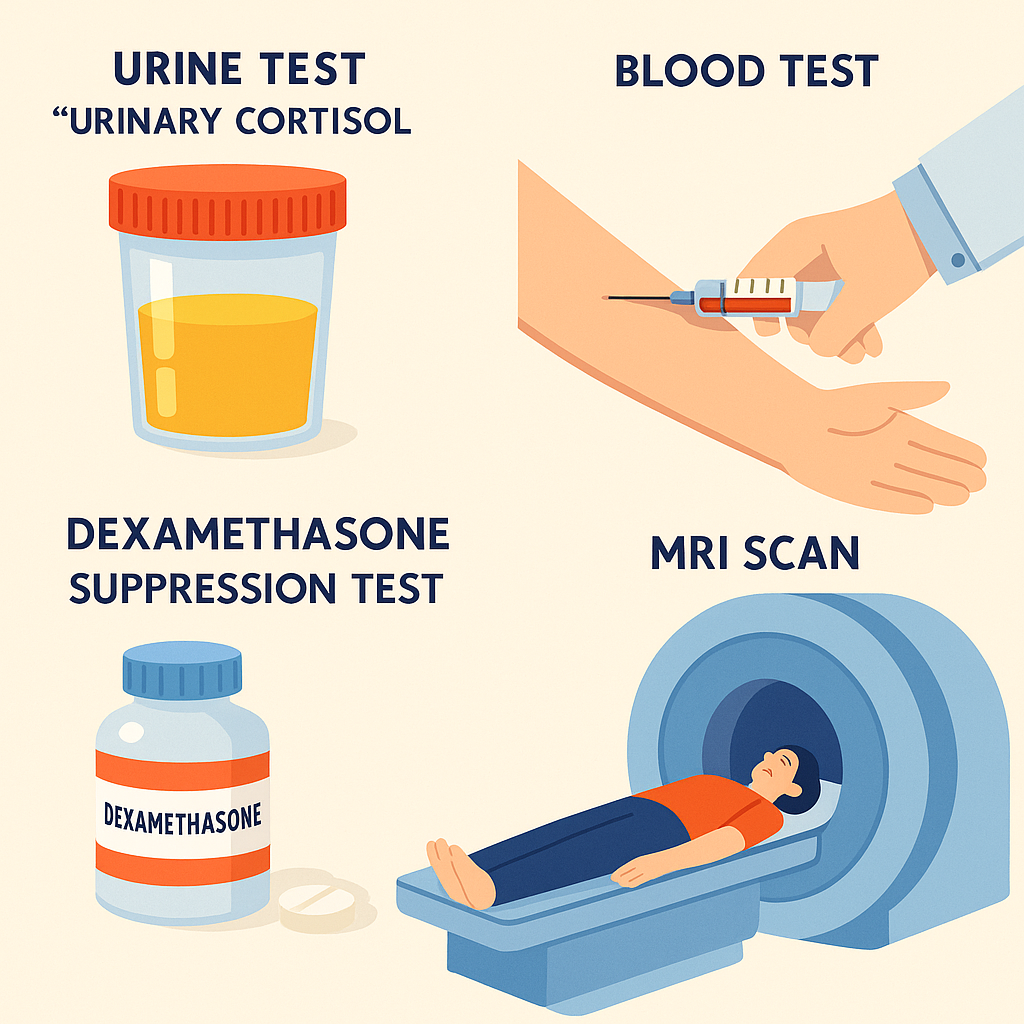News — endocrine disorders
How is Cushing's Syndrome Diagnosed? Key Tests and Procedures Explained
24-hour urine test ACTH adrenal tumors cortisol excess cortisol testing Cushing’s disease Cushing’s syndrome cyclic Cushing’s dexamethasone suppression diagnosis of Cushing’s endocrine disorders endocrine testing high cortisol hormone imbalance how is Cushing’s diagnosed lab testing for Cushing’s pituitary MRI rare diseases salivary cortisol signs of Cushing’s
Often mistaken for stress, weight gain, or hormonal shifts, Cushing’s syndrome is a condition that hides in plain sight. Caused by prolonged exposure to high cortisol levels, it can lead to a host of serious health problems if left unchecked. But because many of its symptoms overlap with other disorders, getting a definitive diagnosis isn't always straightforward. That’s where a precise and layered diagnostic approach becomes essential.
Whether you're a healthcare professional, a concerned patient, or simply curious about this elusive endocrine disorder, understanding how Cushing’s syndrome is diagnosed can help demystify the process. From urine and saliva tests to advanced imaging techniques, the journey to uncovering this condition is as much about ruling out what it isn’t as confirming what it is. Let’s walk through the essential diagnostic tools doctors use to zero in on this challenging syndrome.
Hyperthyroidism: Symptoms, Causes, Diagnosis & Treatment Explained
endocrine disorders fatigue and hormones goiter Graves’ disease hyperthyroid treatment hyperthyroidism magnesium and thyroid mental health and hyperthyroidism overactive thyroid radioactive iodine thyroid blood tests thyroid diagnosis thyroid diet thyroid gland thyroid hormone thyroid medications thyroid supplements thyroid surgery thyroid symptoms TSH test
Hyperthyroidism, a condition marked by an overactive thyroid gland, can turn your body’s natural rhythm into overdrive. From unexpected weight loss and racing heartbeats to mood swings and fatigue, the effects of too much thyroid hormone can ripple throughout the body. Though it affects millions of people worldwide, it’s often misdiagnosed or mistaken for anxiety or hormonal imbalance—delaying critical treatment and relief.
This comprehensive guide dives into the causes, symptoms, and diagnosis of hyperthyroidism, while exploring treatment options ranging from medications and lifestyle strategies to advanced interventions. Whether you’re newly diagnosed, seeking a second opinion, or supporting a loved one, this article provides the clarity and confidence needed to navigate this complex condition with care.
Understanding McCune-Albright Syndrome: The Connection to Fibrous Dysplasia
bone health endocrine disorders fibrous dysplasia fibrous dysplasia management health and wellness MAS symptoms MAS treatment McCune-Albright support McCune-Albright Syndrome rare genetic disorders
McCune-Albright Syndrome (MAS) is a rare genetic disorder characterized by a triad of symptoms: fibrous dysplasia of the bone, café-au-lait skin pigmentation, and endocrine abnormalities. This complex condition is caused by a mutation in the GNAS gene, leading to overactive cellular signaling.
This article focuses on the relationship between MAS and fibrous dysplasia, highlighting its symptoms, diagnostic methods, treatment options, and strategies for living with the condition.



